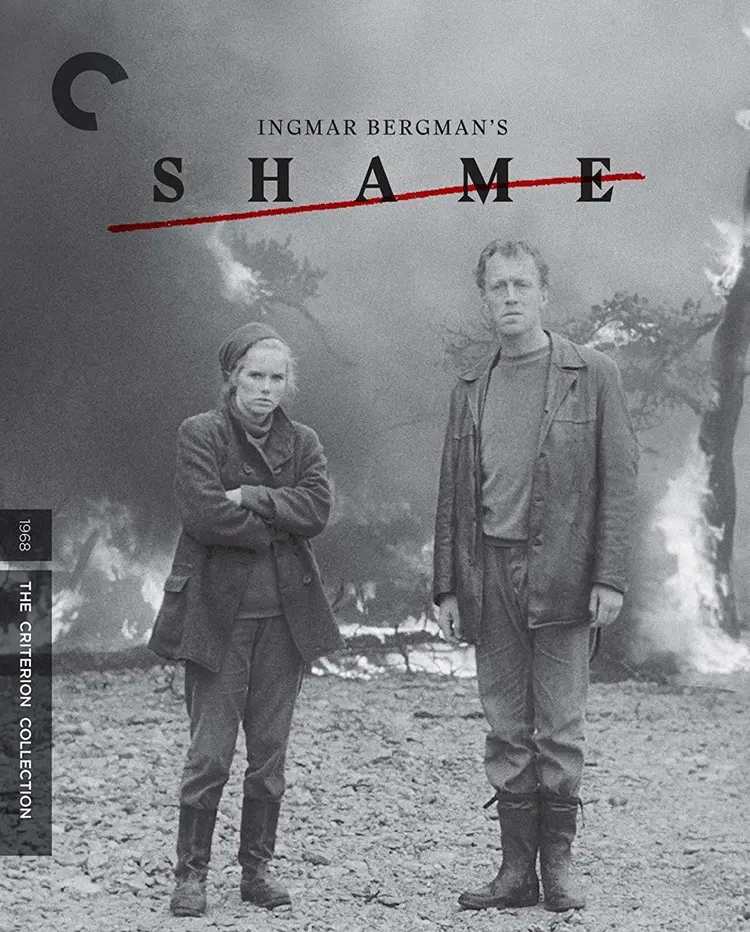
War is Hell. They’re have been many films that tackled the often difficult subject of war, and its effects on humanity. And arguably none come more terrifying and brutal than Ingmar Bergman 1968’s stunner, Shame. Although less remembered than some of his other films, such as The Seventh Seal, Persona, and Cries and Whispers, it’s no less harsh and bleak, as well as unflinchingly honest and unforgiving as a film can ever get.
Buy Criterion’s Shame 1968 Blu-rayBergman mainstays and film legends Liv Ullmann and Max Von Sydow star as Eva and Jon Rosenberg, former musicians who escape the city engulfed in a civil war and now enjoy a seemingly peaceful existence on an isolated island where they also tend a farm. However, the isolation starts to wear on their relationship and to make matters worse, the war they sought to avoid invades their territory in the form of malevolent soldiers who eventually destroy their home and their farm. In the end, they leave the island in a boat with several other survivors where they are forced to come to terms with their crumbling marriage and the horrors of an unknown new world.
Told in stark black and white detail by legendary cinematographer and frequent Bergman collaborator Sven Nykvist, are some of the most devastating scenes in the Bergman universe: Eva and Jon harassed and interrogated by the enemy; a very awkward table scene with Gunnar Björnstrand (Col. Jacobi); their farm/livestock and home being destroyed by soldiers; Jon being forced to kill and rob Jacobi; and most disturbing, the descent/escape by boat where they get stuck in the middle of a watery graveyard of dead bodies. In my opinion, with Shame, Bergman successfully captured the insanity of war better than any other director ever has.
You have to appreciate the work of the folks at Criterion and how they take seriously Bergman’s legacy and filmmaking with a new, incredible 2K restoration, which brings the horror of the story to new life. The supplements are limited, but are no less engaging: Interviews with Bergman and a brief excerpt from a press conference, recorded in 1967 and ’68 for Swedish television; a new interview with Ullmann; An Introduction to Ingmar Bergman, a 72-minute documentary made during the film’s production, featuring an in-depth interview with Bergman. There is a great new essay by film critic Michael Sragow.
There is a reason why the term “Bergmanesque” exists. You can’t call yourself a film lover without Bergman’s cinema. Although not for everyone’s tastes, his films are often intense and painful to watch, but without them, film culture wouldn’t be what it is today.